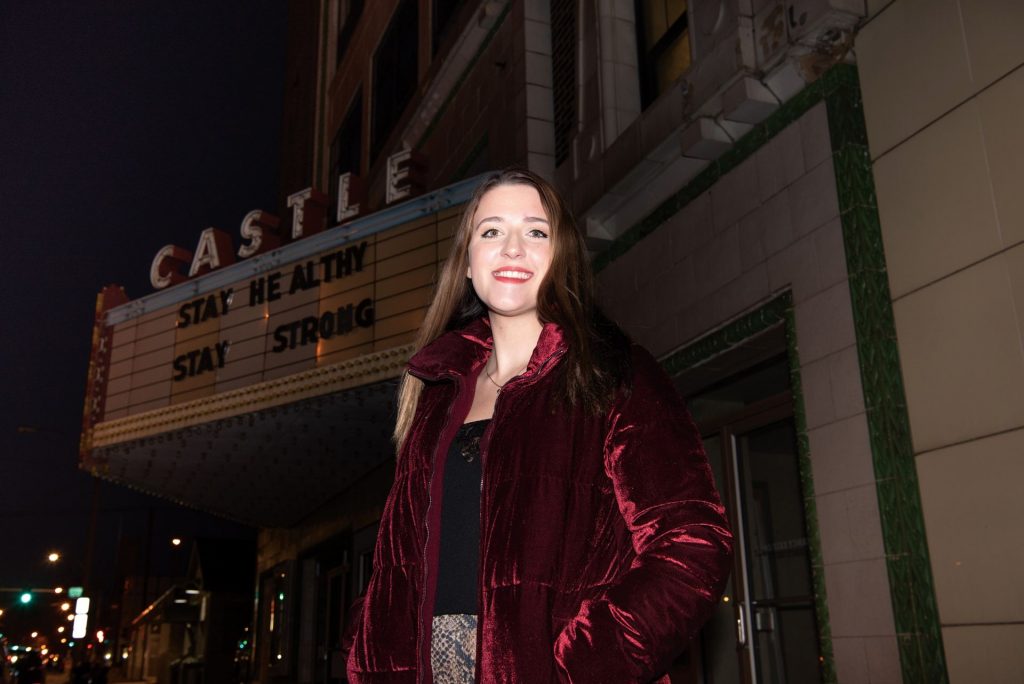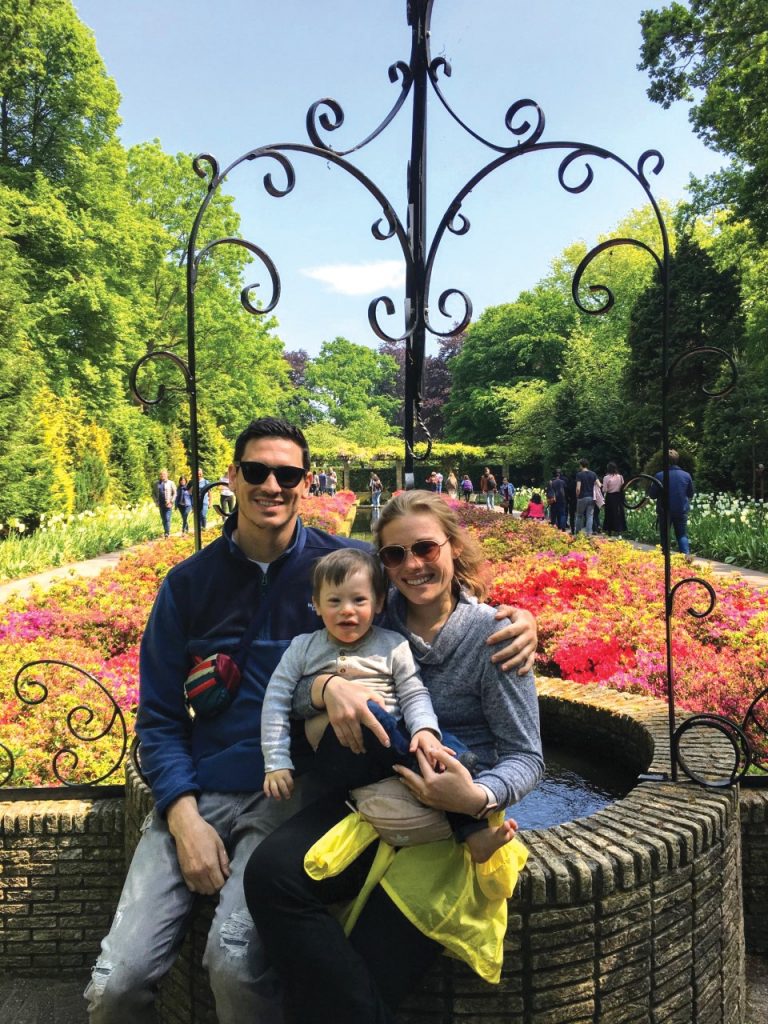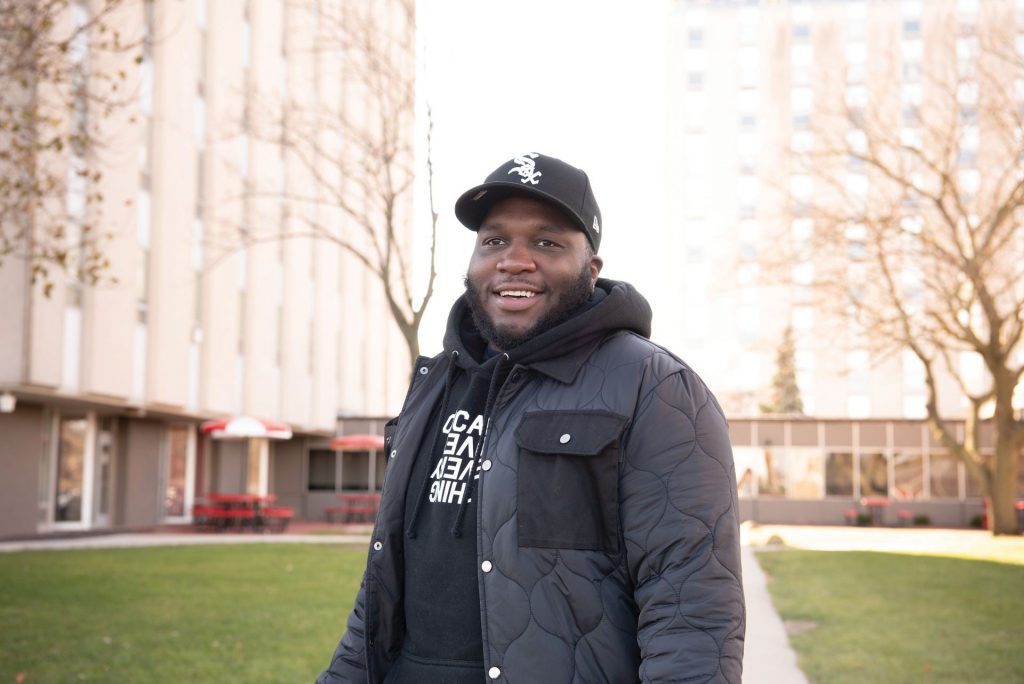There are roads less traveled. And then there are those never traveled.
Several first-generation college students at Illinois State were traversing down uncharted paths when unexpected roadblocks hit. These Redbirds didn’t let unforeseen circumstances derail their ambitions. Among them are three students who remained on track with a helping hand from the College of Applied Science and Technology.
Growing up on Chicago’s South Side, Gavorshey Childress ’20 set out where nobody in his family had ever ventured. He was a summer internship away from being a first-generation college graduate and planned to pay for the experience with money from two part-time jobs. The recreation management major was then going to set the bar even higher by attending graduate school.
When the coronavirus (COVID-19) pandemic began, his part-time jobs as a desk worker at Tri-Towers and a sales associate at Finish Line shutdown. His mother, a truck driver in Chicago, also had her hours significantly reduced.
Childress’ immediate future looked cloudy. Without work and classes at Illinois State transitioning to an online format, Childress moved back home. He pooled the money he had been saving for his internship and grad school with his mother to help her and his younger siblings.
“It was a very, very stressful time for me,” Childress said. How could he continue pursuing his dreams while helping his family stay afloat financially in the midst of a situation he couldn’t control? He needed guidance and assistance that emerged as a result of CAST staff working behind the scenes.
After the Office of Financial Aid provided some grant money, the college agreed to pay for the remainder of his summer balance with money from the CAST Persistence Fund. “It was really eye-opening because I didn’t know that the college actually looked out for the students as much as it does,” a grateful Childress said. “Basically, it took a lot of stress off my shoulders.”
When Dr. Todd McLoda took over as dean of CAST in 2017, he collected data that helped him understand several student factors that jeopardized a smooth path to graduation, including time-to-degree, retention, and optimal program enrollments, among others. He also learned student stories of food and/or housing insecurities.
McLoda was aware of emergency funds around campus to assist students with a temporary financial crisis, but he wanted to develop a sustainable program to help as many as possible. The CAST Persistence Fund was born.
“In spite of their dedication and best efforts, the students have an ongoing balance on their ISU bill that often leads to a registration block,” McLoda said. “If the block is not resolved, that student may not continue in the degree program.”
The fund pays for most or all the outstanding balance so an individual student may register for the next semester and continue on the degree pathway. So far, CAST has applied more than $140,000 to student bills in the past five semesters. Senior Lydia Lightner and Evan Tompkins ’20 are among those who also have benefited.
Lightner saw her part-time employment at Anju Above and the Castle Theatre cut due to the pandemic. With just two classes and an internship standing between her and graduation, she was so close to finishing. With no income to pay for those credits, she was worried she would have come so far only to fall short.
“I saw no hope in sight,” she said, until CAST provided her the resources to stay on track. She continued her internship at the Castle Theatre, gaining professional experience as an event planner that will make her stand out as a job candidate. She will also be the first in her family to receive a college diploma. She is reaching her own goals while serving as an example to others.
“I just had a lot of struggles growing up, and I saw everyone around me having the same struggles,” Lightner said. “I wanted to make sure I wouldn’t have to experience that once I had the power to make it on my own, and I wanted future kids to have a more comfortable life than I had.”
Tompkins, who graduated in the summer with a construction management degree, endured struggles of his own growing up. He didn’t have a father figure and financial burdens were so heavy he had to wait to go to college, enrolling at Illinois State as a nontraditional student.
He had a family at home to care for. He and his fiancée, Molly Mahoney ’20, have a child with Down syndrome. They both lost work when the pandemic hit, and their son’s daycare and school closed. They also had an eight-year-old dog that required medical treatment.
Money from the Persistence Fund helped Tompkins complete his degree and focus on a job search that resulted in his finding work at Kiewit Corporation in Los Angeles. He is grateful that CAST helped provide his family both guidance and a springboard forward.
“Being the recipient of this program made us feel like someone actually cared,” Tompkins said. “Not only did it give us hope, it gave us financial stability to achieve our dreams.”
Tompkins’ work is so stable that Mahoney can stay home and help care for their son as the pandemic continues to change the landscape of schools and daycares. “We are really thankful for the program, and we hope to donate to the program and help somebody out in the future,” Tompkins said.
He, Childress, and Lightner will not forget the helping hand they received from CAST. McLoda asks that recipients of the financial assistance pay it forward when they reach a point in their career that allows them to do so, whether financially or by serving as a role model.
Tompkins works in construction in the nation’s second-largest metropolitan area that is constantly growing. He serves as a pillar of perseverance for his family, giving stability and support to his son as he goes through his own challenges.
With ambitions of becoming either a director at a recreational office or athletic administrator, Childress aspires to mentor kids who grew up in a similar background as his own. He looked up to coaches for guidance and knows that being in a gym instead of the streets motivated him to become the man he is today.
Lightner, a Dean’s List student, is drawn to event planning because she gets to help “create the best days of peoples’ lives” every time she goes to work. She has also started to donate small amounts to those in the community who haven’t yet found assistance like she did through the Persistence Fund.
As these three Redbirds can attest, obstacles that appear to create a dead-end can become opportunities when donors intervene. That is exactly what happens through the CAST Persistence Fund, which ensures students have the resources they need to spread their wings and reach new heights.
If you are interested in supporting the CAST Persistence Fund, contact College of Applied Science and Technology Director of Development Craig Schmidt at (309) 438-7725 or caschmi2@ilstu.edu.



